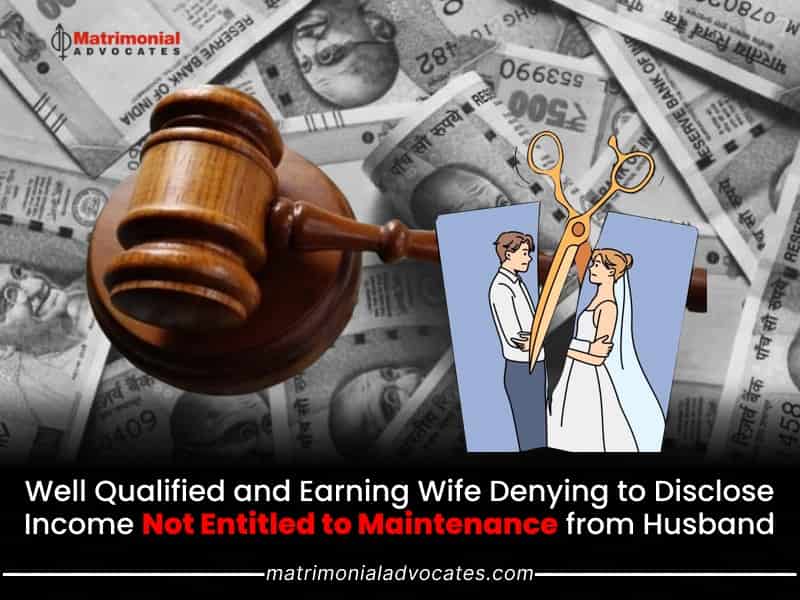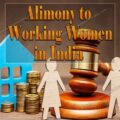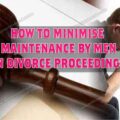
ABC v. XYZ, 2023 SCC OnLine Del 5624, decided on 12-09-2023
Introduction
The term ‘maintenance’ is defined as an amount payable by the husband to his wife who is unable to maintain herself either during the subsistence of marriage or upon separation or divorce. The terms ‘maintenance’ and ‘alimony’ have been used interchangeably, the term alimony means an allowance or amount which a court orders the husband to pay to the wife for her sustenance. The husband must maintain his wife and this obligation arises in marriage. Such obligations are imposed on him by operation of law.
In India, majorly five communities are identified including Hindus, Muslims, Christians, Jews, and Parsi. These communities have their laws derived from customs/traditions and laws. The law on maintenance and alimony varies from one community to another. For instance, under the Hindu Marriage Act, 1955, both the wife and the husband are legally entitled to claim maintenance but under the Special Marriage Act, 1954, only the wife can claim permanent alimony and maintenance.
Brief facts of the case
The marriage between the couple was held on 21-04-2014, however, due to incompatibility and differences, they were unable to continue in their matrimonial relationship. Hence, the husband filed Divorce Petition u/s 13 (1)(ia) of the Hindu Marriage Act, 1955 (for short HMA).
The wife was working till then, however, after filing of the Divorce Petition, on 22.05.2022 she resigned from her job. The matter was amicably settled between the parties, and the Divorce Petition was withdrawn by the husband.
But a police complaint was filed by the wife in the year 2016 in which it was reflected that the parties were not able to settle their matrimonial disputes. The matter was considered afresh by the Family Court and it was observed that the wife was highly qualified and she had been working even after the marriage. After considering the facts, the Family Court declined to grant her maintenance during the pending litigation.
The wife being aggrieved by the order of the Family Court filed an appeal and had sought interim maintenance of Rs.35,000 per month in addition to litigation expenses of Rs. 55,000. The wife is the appellant who had challenged the order dated 03.09.2019 of the Principal Judge, Family Court. The Family Court had dismissed the wife’s application filed for maintenance u/s 24 of Hindu Marriage Act, 1955 (for short ‘HMA’).
Observations of the Court
The matter was heard by the High Court of Delhi comprising of the Division Bench of Justice Suresh Kumar Kait and Justice Neena Bansal Krishna. It was held by the High Court that it was not only that the wife who was well-qualified and she had a good earning capacity. However, she had been earning, and was unwilling to disclose her income truthfully.
It was observed by the High Court that the wife held the degree of M. Phil at the time of her marriage and was pursuing a Ph.D. which she had completed and now had the qualification of Ph.D. (Management) with professional qualification in Computers. However, the husband was a simple graduate.
It was further noted that the wife was working at a Diamond Jewellery Showroom at the time of her marriage and was getting Rs. 12,000 per month and after marriage in 2015 she had held her job.
After noting the above facts, the High Court concluded that the wife was well-qualified and she was working. That the Family Court had rightly observed that the wife had initially failed to disclose that she was working even if not regularly or for charity as claimed by her. It was observed by the Family Court observed that a person who was so highly qualified would not be working, is difficult to believe and it was even more difficult to accept that she would be working for charity.
Cases relied upon
In the case of Mamta Jaiswal v. Rajesh Jaiswal, 2000 SCC OnLine MP 580, it was observed that “Section 24 of the HMA had been enacted for the purpose of providing monetary assistance to either spouse who was incapable of supporting himself or herself in spite of sincere efforts. However, the law did not expect persons engaged in the legal battles to remain idle solely with the objective of squeezing out money from the opposite party. Section 24 of the HMA was not meant to create an Army of idle people waiting for a dole to be awarded by the other spouse”.
In Rupali Gupta v. Rajat Gupta, 2016 SCC OnLine Del 5009, wherein the Division Bench of the High Court deprecated the claim of maintenance under Section 24 of HMA by a well-qualified spouse having earning capacity.
Decision of the Court
The High Court upheld that order of the Family Court of dismissing the wife’s application for seeking maintenance u/s 24 of the HMA. The Court stated that “We on the facts as narrated above, agree with the conclusions of the learned Principal Judge, Family Courts that the appellant not only is a highly qualified lady, but has been working even at the time of her marriage and thereafter. The documents and the admissions made by the appellant clearly lead to an irresistible conclusion that she is employed in the office of the M.P.”
The Court stated that “Pertinently, the claim for maintenance by the appellant under the provisions of Protection of Women against Domestic Violence Act has also met the same fate and the maintenance has been declined to her. We, therefore, find no merit in the Appeal which is hereby dismissed.”
It was stated by the Court there is no doubt a difference between ‘capacity’ and ‘actual earning’, but it wasn’t a type of case where the wife had only the capacity but was also working.
Conclusion
It was held by the High Court that it was not only that the wife was highly qualified and had an earning capacity, but in fact she had been earning, though had not been inclined to truthfully disclose her income. The High Court opined that such a person could not be held entitled to maintenance, therefore, dismissed the appeal as it found no merit in it.





